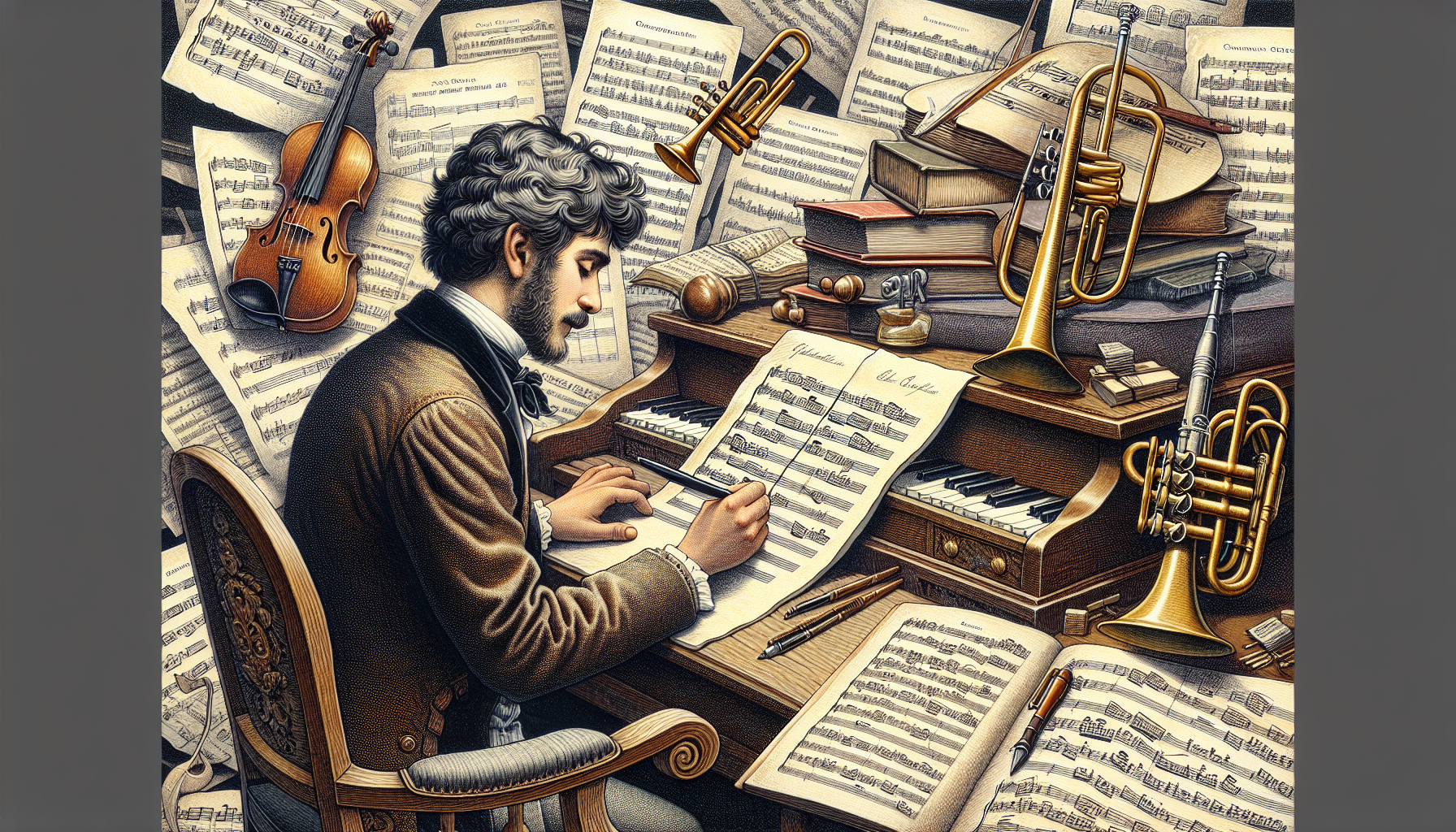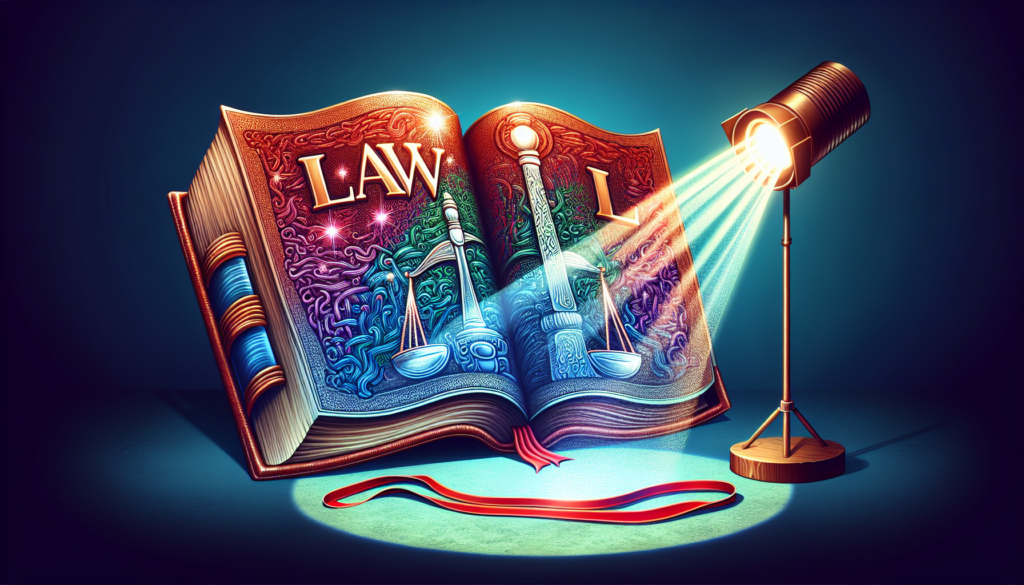Short Answer:
Music law safeguards artist rights, distinguishing between compositions and recordings for copyright and royalties. It emphasizes the role of music lawyers in ensuring fair compensation and navigating legal complexities, blending legal expertise with creative expression in the music industry.
Introduction & Background
With over a decade of legal experience, including a significant role as General Counsel for Grooveshark during a pivotal time of litigation against major record labels, my expertise in the intersection of music and law is both deep and personal. During my time at Grooveshark, I navigated the complex legal terrain of music rights, copyright law, and the digital dissemination of music. This role not only required a meticulous understanding of the legal framework protecting artists but also a strategic approach to litigation that balanced aggressive defense with the nuanced intricacies of the music industry.
This experience directly informs my understanding of the subject at hand: the critical importance of music law in the realm of classical music and beyond. The challenges and strategies I encountered in protecting Grooveshark’s position against copyright claims have provided me with firsthand insight into the mechanisms of copyright law, the complexities surrounding artists’ rights, and the evolving landscape of music in the digital age. As we explore how copyright law serves as the “invisible shield” for composers and artists, my background offers a relevant and informed viewpoint on the necessity of legal protection to ensure the longevity and integrity of creative works in the face of ever-changing technological advancements.
Key Takeaways
-
Copyright law protects the rights of composers and performers, granting exclusive rights to their works for a period that usually extends to 70 years post-mortem, with compositions automatically protected upon creation.
-
A composition and its sound recording are treated as distinct entities in copyright law, each with separate rights and royalty streams, requiring specific licenses for legal use in various formats, such as streaming and synchronization for media.
-
Music lawyers play a pivotal role in the industry by guiding artists through complex legal and contractual issues, ensuring the protection of rights and fair compensation, with expertise in navigating negotiations, agreements, and intellectual property.
The Intersection of Music and Law
Music and law may seem like different universes, one filled with passion and creativity, the other with order and logic. However, on closer inspection, one begins to see a fascinating intersection between the arts. Both fields require discipline, continuous practice, and a refined understanding of complex structures. Just as a musician hones their skills through practice, a lawyer refines their abilities through rigorous study and analysis, following a well-structured course.
Individuals with backgrounds in both music and law, such as musician-attorneys, find their skills in both areas to be complementary and mutually reinforcing. The discipline and focus nurtured by musical practice can contribute to a balanced approach to handling the pressures of the legal profession. Just as an artist finds beauty in the chaos of notes, a lawyer finds meaning in the labyrinth of laws.
Copyright Law and Classical Music

Copyright law forms the backbone of protection for artists. It’s like an invisible shield, safeguarding the compositions and performances of classical music composers and ensuring they have exclusive rights to their works for a period of time. Just as a composer invests time and effort into creating a masterpiece, the law invests in protecting their rights to that form of music.
In most countries, this invisible shield lasts for several decades after the composer’s death, typically up to 70 years. This duration allows composers to reap the benefits of their creations during their lifetime and ensures their legacy continues to generate benefits for their heirs.
Protecting Composers’ Rights
Imagine if the moment you penned down a melody or hit record on your composition, an invisible shield sprung up to protect it. That’s precisely what copyright law does. It automatically safeguards a musical composition the moment it is recorded or written down, providing composers with exclusive rights to their works.
This automatic protection is like a basic guard, but composers can reinforce it by registering their works with the U.S. Copyright Office. It’s akin to upgrading your basic guard to a fortress, granting composers additional legal benefits, such as the ability to file infringement lawsuits in federal courts.
Public Domain and Fair Use
Imagine a vast open field where composers’ works roam freely after the shield of copyright has faded. This is the realm of public domain, where classical music compositions typically find themselves 70 years after the composer’s death. In this realm, musicians can use these works freely without the need to seek permission.
However, not everything is as free as it seems. While the original works in the public domain can be used freely, any adaptations or new versions of these works can still be protected by copyright, thus requiring permission for their use. This concept, along with exceptions like fair use, adds layers of complexity to the seemingly straightforward field of public domain.
Recording and Performance Rights

In the world of music, a composition and its recording are like twins with distinct personalities. Both are subject to copyright protection, but each has its own set of rules. While a composition refers to the melody, chords, and lyrics, a sound recording refers to the capture of a performance of that composition.
Take, for instance, a classical music composition that has entered the public domain. An artist or band can perform and record it without needing to obtain permission for the composition. However, the artist’s unique interpretation of the composition as captured in the sound recording is considered a new work that qualifies for its own copyright protection.
Obtaining Licenses
Just as a key is needed to open a locked door, a license is required to use copyrighted music in recordings or performances. Obtaining a music license is like gaining permission to pass through a door that leads to the world of legal music use. This permission is usually granted by the entity representing the artist’s work, such as:
- the artist
- the publisher
- the record label
- the music licensing company
In today’s digital age where music is often used in conjunction with audio-visual projects, a specific type of license known as a synchronization or sync license is commonly needed. From YouTube videos to podcasts, content creators require proper licenses to legally use copyrighted music for streaming purposes.
Royalties and Compensation
Royalties are the lifeblood of artists’ income, providing a financial return for the use of their original compositions and sound recordings. Just as a river splits into tributaries, royalties are divided among various stakeholders. Separate copyrights for the compositional and the sound recording elements of a song each generate independent royalty streams to stakeholders like:
- Bands
- Record labels
- Songwriters
- Publishers
Different uses of music, such as:
- sales
- streaming
- public performances
- sync licensing for media
generate different types of royalties, reflecting the diverse revenue streams in the music industry. The distribution of royalties is typically prioritized to artists and rights-holders before other revenue allocations such as company profits.
Legal Issues in the Digital Age
The digital age has revolutionized the music industry, introducing new platforms for music distribution and consumption. Digital download services like iTunes marked a significant shift from traditional physical sales, enabling consumers to purchase individual tracks. Subscription-based streaming services, such as Spotify, have introduced new business models that bring into question revenue sharing and their long-term sustainability for the music industry.
However, this evolution has also given rise to a complex legal landscape that artists and industry professionals must navigate to protect their rights and ensure fair compensation. In an era where physical manufacturing costs are largely absent, music contracts should be scrutinized for recoupable expenses, which can often be minimized or eliminated.
Streaming Services and Copyrights
The rise of streaming services has brought about significant changes in music law. The Music Modernization Act, effective from 2021, brought about critical changes to the way composers and rights holders are compensated for music streams on online services. This Act is like a new rulebook for the digital age, ensuring that the rights and compensation of artists keep pace with the evolution of technology.
Under the Music Modernization Act, rights holders, including composers, must register with the Mechanical Licensing Collective to ensure they receive royalty payments from online interactive streaming services. This step is like claiming a ticket to the royalties due for the digital dissemination of their works.
Social Media and Video Platforms
The use of music on social media and video platforms is like walking a tightrope. On one side, music can enhance the appeal of your videos. On the other, using copyrighted music without authorization can lead to serious legal and financial penalties, including copyright infringement lawsuits and substantial fines.
To avoid falling off the tightrope, creators can utilize royalty-free music, music licensed under Creative Commons, or the music licensing options provided by the social media platforms themselves. It’s like using a safety net to ensure your content remains within the bounds of copyright law.
Navigating Music Contracts
Navigating a music contract is like exploring a maze. It’s a complex structure filled with clauses that define the rights and responsibilities of both the artist and the label. Understanding intellectual property rights, the allocation of generated income, and ensuring contract terms clearly outline obligations are fundamental aspects of music contracts.
In this maze, a music lawyer is like a seasoned guide. Lawyers are in fact vital in the negotiation process of recording agreements, protecting artists from unfavorable terms and assisting in establishing equitable deals with record labels.
Key Contract Terms
Music industry contracts are divided into various types, each with a unique landscape of clauses. Some of the most common types of contracts include:
- Management agreements
- Recording agreements
- Master license agreements
- Publishing agreements
Understanding the critical clauses in each type is essential to navigate these contracts successfully.
For instance, the term clause of a music contract stipulates its duration, which can vary significantly depending on the type of agreement in place. A territorial clause designates the geographical area in which the contract is valid, and exclusivity clauses determine whether rights are provided exclusively, often leading to negotiations for better royalty rates or advances in return for exclusive rights.
Tips for Successful Negotiations
Negotiating a music contract is like playing a strategic game. Understanding the interests of the other party can lead to agreements that are beneficial to both sides. Artists should be realistic in their expectations and prepared to make compromises, which could include changes to their music or image, as they have played a significant role in their success.
It’s also important to be aware of the rules of the game. For instance, understanding breach and termination rights in a contract allows for an exit if the other party fails to fulfill their obligations. Before entering into any contractual agreement, one must not rush and must fully understand the terms to avoid unfavorable commitments.

The Role of Music Lawyers
Music lawyers are like the superheroes of the music industry. They are specialists with a deep understanding of legal complexities and the operational intricacies of the music industry. Armed with a comprehensive knowledge of music law and intellectual property rights, they fight to protect artists’ rights and ensure fair contracts.
In the arena of record deals, an experienced music lawyer is an essential ally. They:
- Navigate complex contracts
- Protect artists from unfavorable terms, such as restrictive 360 deals
- Have strong relationships within the entertainment industry, offering artists a strategic advantage
Their superhero status further adds to their value in protecting and advocating for artists, as they perform crucial acts in their defense.
When to Consult a Music Lawyer
Knowing when to consult a music lawyer is like understanding when to call for help in the event of a crisis. Music contract rights can be complex, making legal consultation crucial to ensure artists comprehend both their obligations and entitlements.
Artists should seek legal counsel when faced with issues such as:
- financial transactions
- ownership rights
- collaborative projects
- entering significant contractual agreements
It’s like having a lifeline to call upon when navigating the intricate waters of the music industry and finding the right band member.
Finding the Right Music Lawyer
Choosing a music lawyer is like selecting a trustworthy navigator for your journey through the music industry. It’s crucial to verify their experience with music copyrights and understand the range of services they are equipped to provide.
Compatibility between the music lawyer and the artist is vital, making it important to find a lawyer who shows genuine passion for the artist’s work and aspirations. A well-respected lawyer with positive reputation can be instrumental in guiding artists safely and successfully through the ever-changing landscape of the music and arts industry.
Summary
The world of music law, with its intricate interplay of copyrights, contracts, and royalties, is as complex as it is fascinating. It’s a world where music and law intersect, where the harmonies of legal protection play alongside the melodies of creative expression. Understanding this world is crucial for artists and industry professionals seeking to navigate the music industry successfully.
As the digital age continues to reshape the music industry, the importance of understanding and navigating music law cannot be overstated. So, whether you’re a budding artist, an experienced industry professional, or a music enthusiast, remember – understanding music law is like learning the language of the industry, a language that empowers you to orchestrate your success.
Frequently Asked Questions
Do law schools like music majors?
Law schools do not specifically favor music majors, but rather prioritize a well-rounded education in diverse subjects like history, English, philosophy, and political science for admission. Consider focusing on these areas during your undergraduate studies.
What is the law on music royalty?
The law on music royalty is based on U.S. copyright laws, which give exclusive rights to creators of original works, requiring a license for the use of copyrighted music. This forms the basis for royalty payments in the music industry.
What is the role of copyright law in classical music?
Copyright law in classical music plays a crucial role in protecting composers’ compositions and performances, granting them exclusive rights to their works for a period of time.
What are the distinctions between a musical composition and its sound recording in terms of copyright?
The musical composition and its sound recording are separate works that each have their own copyright protection and rules.
What is the Music Modernization Act?
The Music Modernization Act, effective from 2021, brought critical changes to how composers and rights holders are compensated for music streams on online services. It ensured fair compensation for music creators.



